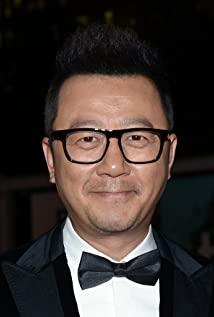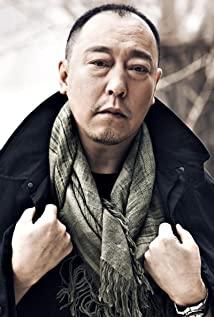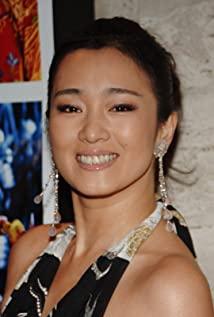The rich young master and Long Er had fallen into an obsessive mentality similar to mental illness. At the end of the gambling game, he lost his family wealth, forced his wife away, and even risked his father's life. Unlike Long Er who covets his family's property, we can't see what material purpose the rich young master is gambling for. According to Beijing's words, he is good at it. There are already two less rooms in the family. Climate, someone needs to carry it when you go out, someone to serve you when you go home, wealth and honor are just like this cheesy name, and the idealistic spring dream is destined to wake up at the sweetest time. It seems that at that moment, the wealthy waist straightened up, and he stood on the street selling his family, and his neck shrank. It was not until reality approached that he thought about a special metaphysical question: how to live.
So Fugui bent over to ask Long Er. The screenwriter didn't design Long Er as a villain's face. He won with integrity, and his money earned brightly. What he said was reasonable: rescue the emergency or not the poor, Long Er plays shadow puppets. Giving wealth and honor means: you can do it yourself. Later, we saw that the shadow puppet became the thread that runs through the whole film, and its symbolic meaning is also obvious. The idealized image we saw in front of the screen was just a projection of the reality portrayed by the cruel rapper behind the scenes. Therefore, this Ideals must be dreamy and untested. That is to say, in that performance, the curtain of wealth was pierced by a bayonet knife, and this was a few years of battle on the battlefield where life and death were uncertain.
The wealthy came back, just because acting for the People's Liberation Army was considered to have participated in the revolution, but at the same time Long Er was given five shots. Fugui said frightenedly, "If I didn't lose back then, I would have died." It seems that life is often so absurd.
The rich and noble one son and one daughter are very symbolic, because the little ruffian bullied Fengxia, and Youqing fought for her sister but was beaten by her father in front of everyone. This righteous little gentleman will not admit his fault. The first time he saw the shadow play performed by his father, he was attracted by this beautiful scene. The screenwriter is kind. It did not let this little gentleman incarnate with a sense of justice live to the 1950s, but let him die in the revolutionary feelings of smelting steel. I can't imagine what it would be like for such a pure and kind child to grow up in the Cultural Revolution and become a red soldier with a gun at his grandfather. The author was fooled and just let him die. Let's look at the rich and noble daughter Fengxia. The little girl survived a high fever but became mute. This is exactly the embodiment of the people during the Cultural Revolution. It is better to make her completely dumb instead of pretending to be deaf and mute. Everyone at the wedding While singing Fengxia, she couldn't open her mouth, she just laughed. We know that even a mute can make a dry roar when in extreme pain. In the delivery room, Fengxia endured the pain but did not speak. She bit her lips and sacrificed herself. , accepted the trial of this crazy age. What the son who died in the ideal revolution longed for most was to eat dumplings with ease, while the daughter who died in the cruel reality looked forward to seeing his son's photo. Reality and ideals were thus united. The rich left and right hands were chopped off, but he still had to live, because reality gave him hope again, and he had a grandson.
Fugui has always lived like this, he never asked "why he lived", nor did he explain to me "how he wants to live", he just existed in the form of BEING in English, in the state of "alive", but other people's The moment of existence reminds the audience to think about living, for a comfortable house, for the comrades who once fought side by side, for the ideal of socialism, for the sake of repaying one's life... But wealth does not have such a clear purposeful expression, he When he is rich, he does not gamble to make money. When he is poor, he does not go to a stall to make a fortune. If he can have a better job, he would rather continue to make hot water. Maybe what Jiazhen said was "I just want to live a solid life with you", which is the best for "poor and lower-middle peasants". But the audience can't help but continue the author's creative idea of "what is the rich and noble to live for."
Zhao Benshan said, how to make the audience like a TV series, a protagonist, if you repeatedly toss him, he will not live well or die. The Fugui family is so unlucky. It seems that everything is deliberately torturing the family, but I think there is still a lot of creative space between reality and ideals. If Kim Ki-duk made this film, it would definitely be a black film. At the end, the cruelty of human nature is pushed to the extreme. If Park Zanyu takes this theme, it will be the slaughter of human nature, but this is Zhang Yimou, he is destined to not be cruel enough, he is destined to be a romantic idealist, not a cruel one. Butcher.
It's also Gong Li, let's compare Jiazhen with Juxian in "Farewell My Concubine". The heroine in "Ba" is kind, innocent, pungent and romantic. She is indeed a bitch from a brothel. That's the highlight of this role. The minds of the audience are very perverted, and they are far less kind than the screenwriters. In this era of increasingly dull senses, the audience needs huge stimulation to arouse the audience's emotions. In this film, we can hardly see the discussion of human nature in Jiazhen. This traditional Chinese woman is too one-sided. She is stubborn and virtuous, and she is innocent and kind. She has no faults and no discussion. She doesn't love vanity, she just wants to live a solid life. She came back when she had no wealth and honor, and she disappeared. She took the children by herself and never thought of remarrying. Even the stubbornness of being a mother was the last thing she opened the door of the house. Moment was broken by kindness, and she comforted Chunsheng by saying, "You have to live well, you owe our family a life." The design of this character is a little too flat, and she is too idealistic. I remember that someone interviewed Mr. Jin Yong and asked him who the heroine in the book he disliked the most. He didn't even think about it and said "Wang Yuyan". The extremely flat has no personality at all. Jiazhen's aura of humanity is too dazzling, so I said, this is not a representative work of realism at all, this is the embodiment of special perfectionism.
Zhang Yimou's films have a particularly big feature, that is, they have to "run". When Fugui was still a young master, someone had to carry it out of the casino, and the fat aunt ran home with the half-dead rich and famous, and turned around at the corner of the street; Youqing heard someone bullying her sister, and ran quickly in the alley, and it was a special show on the corner of the street. Zhang Yimou is good at using this kind of marching technique to cut the plot.
What is particularly interesting is that at the end of the film, Jiazhen and Fugui discuss what name they should give their grandson. Jiazhen said that the nickname is Mantou, not a human name. Children can live. Folks say that a child's name is cheap and easy to support. Why not call his uncle Dumpling in memory of the child, so the name "mantou" is definitely not groundless. A good professor almost choked to death because he ate 7 steamed buns. Academic counter-revolutionaries are not concerned with medical common sense at the juncture of life and death. This life-saving steamed bun can also choke to death if it is not used properly. This is Mr. Lu Xun's article. I don't think this is an attack on the etiquette of cannibalism. The blood on the steamed buns is exactly the filthy blood that has been blown by the wind of social justice revision. People can neither throw nor swallow, what is this, this is the reality of the Chinese system: absurd lucid dreams.
We don't know what the author wants to convey, and we don't need to know at all, because the film belongs to the audience, not the author, and here we have to quote the vulgar line "A thousand audiences, there are a thousand Hamlet." Some people say that the film will convey different messages in different eras and backgrounds, but I think the film is equally applicable under any conditions and backgrounds, just like "Alive" was a banned film back then, and when you watch it in 2011, it will It’s also the same incoherent and discordant. It seems that people’s reflections on historical times are always very similar. When I think of a special issue commemorating Lu Xun in “New Weekly”, it is impressively written, “What we scold today, Lu Xun scolds in those days. "Yes, in 2011, there were still rich young masters, but in 2011, we felt that Jiazhen was more idealized. But what have we done? In our actions, Erxi is an honest lame man, and in our demeanor, Fengxia is a submissive mute. The Cultural Revolution did not exist in a specific era. If we are mentally deaf and physically disabled, we are experiencing the catastrophe of the Cultural Revolution and we must continue to stand trial.
At the end of the film, the author did not give a word for "living". Jiazhen said to her grandson that "you will grow up by then". In fact, I think it is good to live in a confused way. Lao Tzu proposed "governing a big country is like cooking a small fresh food". The political idea of is really absolute. The people do not have the quality of democracy. You let them know so much that they cannot be eaten as steamed bread. What are you doing? Is the policy of ignorance really bad? The pain is that you gave him illusory hopes and ideals that seemed to be achievable, but when he faced reality, he was at a loss. Never say again, "A true warrior dares to face a bleak life." After all, not everyone is Haiyan, and how incomplete our education is to establish this kind of value for the younger generation. We are not qualified to devalue other people's life philosophy while promoting a value that sheds blood for ideals: it's good to live. Just like "The Catcher in the Rye" said, "The mark of an immature man is that he is willing to die heroically for a certain cause; the mark of a mature man is that he is willing to live humbly for a certain cause." A sea duck, he cowered and swallowed the bloody bun, but he survived. To live is to be fine.
2011.11.9
View more about To Live reviews











